Coffee Tours Ethiopia 10 Days Yirgachefe and Sidamo
Coffee in Ethiopia
It is no surprise that Ethiopia has the ideal growing environment for producing fantastic coffee. The high elevations and mountainous regions make for excellent growing conditions. There are more than a thousand varietals of coffee beans grown in Ethiopia. Because coffee trees grow naturally in Ethiopia, most of the coffees are under shade, among other plants, and without the use of agricultural chemicals.
Three coffee production methods are used in Ethiopia: Forest Coffees, Garden Coffees, and Plantation Coffees. For Forest Coffees, the beans are wild-grown and harvested by the locals. Garden Coffees are grown in smaller plots of land alongside a variety of crops and are measured by trees rather than hectares. Plantation Coffees are beans grown on large estates. Only a small percentage of Ethiopian coffee is harvested this way. The Garden Coffee technique is the most popular method for producing coffee in Ethiopia.
Coffee is not only a popular crop in Ethiopia, but it is also an essential part of the culture. So much so, that they created a daily event known as the Ethiopian Coffee Ceremony. During this ceremony, locally grown coffee beans are roasted on a flat iron pan over a small charcoal stove. After the roasting is finished, the beans are placed on a clay plate or straw mat, and the aromas are savored among the guests. The beans are then crushed/grounded by pestle and mortar into powder and brewed with boiling water and spices (cinnamon, cloves, and cardamom). The coffee is poured into small cups with sugar added, and incense is released into the air to cast away any evil spirits.
As a sign of respect, the oldest male of the group is served first, and the youngest child is in charge of serving. This tradition symbolizes the connection between all of the generations. Three rounds of coffee are served during the ceremony, and bread or popcorn is often enjoyed with it. The complete ceremony takes about one to two hours, and an invitation to the gathering signifies friendship and respect. Couldn’t you tempted to be part of this ceremony in Ethiopia?
Ethiopian Coffee Flavor Profile
The ideal higher elevations in Ethiopia certifies all of their green coffee to be labeled as Strictly High Grown (SHG) / Strictly Hard Bean (SHB). Due to the altitude, SHG coffees are grown slower, allowing for more nutrients to be delivered to the coffee beans. This increase in nutrients makes the coffee denser and more flavorful. Dry processed beans were traditional more common, but wet-processed beans are increasingly becoming more popular.
There are three central regions that single-origin coffee is produced and sold: Sidamo, Yirgacheffe, and Harrar. Each one of these regions produces coffee with its own distinct flavor profile.
Yirgacheffe: These coffees have a sweet and fruity flavor and aroma, with a light to medium body. They are incredibly fragrant and are regularly rated and reviewed as the highest quality Arabica beans in the world. Since they are premium grade coffees, they are often more expensive.
Sidamo: Best known for its rich mouthfeel, full bodies, and sweet and complex flavor profiles. Sidamo beans often have low acidity, with a vibrant aftertaste. Because of their flavor consistency, they are a staple Ethiopian bean for many coffee roasters.
Harrar: Most commonly dry-processed, these beans are heavy-bodied with a very spicy and fragrant aroma. They have a floral acidity and produce a bright, almost intensely flavored cup. The taste is often described as "wild" or "jammy" and is reminiscent of a blackberry.
Ethiopian beans as a whole are known for their winey quality and bright mouthfeel. They typically have a light to medium body, higher acidity, and complex flavor notes. Most of the coffees from Ethiopia are naturally processed, which means that they are dried with the cherry fruit still attached to the coffee bean. This style of processing gives the coffee fruity or winy tones and bright acidity. Wet processing is a newer method, and the fruit is removed. The final cups are clean, floral, and complex.
From the rich and fruity flavors of Harrar to the bright and floral notes of Yirgacheffe, the unique characteristics that Ethiopian coffees have offered have become some of the best-reviewed and most sought after premium coffee beans in the world. Here are some quick facts about Ethiopian coffee:
Quick Facts
Ethiopia is the 5th Largest Coffee Producer in the world.
Growing Altitude:
1,500-2,200 meters (above sea level)
Harvesting Season:
November - February
Temperature:
60-95 ℉
Small Scale Farmers:
15 million
Coffee Varietals:
Arabica: Native Heirloom Varieties
Gallery
Ethiopia Coffee Tours-OFF THE BEATEN TRACK EXPLORING THE COFFEE GROWING AREAS
DAY-01
Drive Addis Abeba to AwassaDrive Addis Ababa to Awassa on the way visit rift Valley lakes Region. Visit Lake Ziway, the most northern lakes among the Rift Valley lakes group and is famouse by its bird and species and fish products. O/N. Hotel
DAY 02
DRIVE AWASSA TO YIRGACHEFEDrive Awassa to Yirga chefe. Coffee farm from Yirga cheffee. Visit the Coffee Union Project in Yirgachefe. Coffee from Yirgacheffe is a very alluring coffee! The citrus notes have a truly unique character. After grinding, you will notice a sweet caramel fragrance. After brewing, you may notice a spicy, pepper note. The finish is zesty with hints of plum. O/N. Hotel
DAY 03:
VISITING OF COFFEE FOREST AND PROCESSING AREAThe whole day you will be active in visiting the coffee plantation and its process from the farm to the site including picking, washing, drying and finally attending the coffee ceremony in the site for real tasting. O/N. Hotel.
DAY 04:
DRIVE YIRGACHEFE TO YIRGALEMMorning, you walk around in the village where the local coffee workers and farmers are living. Learn their living culture and life style. Keep driving further north destined to Yirgalem, Aregash Lodge. The lodge is built by the design of Sidama Hut. Late in the afternoon, you’ll be welcomed by Traditional coffee ceremony. O/N. Aregash Lodge
DAY 05
DRIVE YIRGALEM TO DEBRE ZEITAfter having your breakfast, drive to Wendogenet. Visit the surrounding dense forest and vegetation including Coffee, Sugar cane and different fruits like Mango and Avocado. Keep driving further to Debre Zeit which is home for 7 crater lakes. You will stay at one of the resort located at shore of one of the lake. O/N. Hotel
DAY 06
FLY TO JINKA & DRIVE TO BONGAEarly morning drive back to Addis Abeba. Catch your flight to Jimma to explore the origin of Coffee. Meet with your driver, and head to Bonga/Kefa zone. Bonga is the capital city of Kafa zone and has about 25,000 inhabitants. It is situated on a mountainside. O/N. Local Hotel/Guest House
DAY 07
THE MANKIRA COFFEE FOREST-THE MOTHERLAND OF OLDEST COFFEE TREESMANKIRA-THE MOTHERLAND OF OLDEST COFFEE TREES
After breakfast, you head, either by car or bike, for the birth place of Arabica Coffee. Having reached Mankira forest, you continue on horse back. Via narrow paths, you make your way to God's bridge, an impressive natural crossing that spans a wild, rushing stream. As you advance deeper into the forest, your guide tells you interesting facts and stories about traditional coffee- growing. After 10km(by foot or on horse), you stand in front of the oldest coffee tree in Kafa; known locally as 'Mother Coffee Tree'. Some 20 feet tall and eight inches thick, it is reputed to be the oldest coffee tree in the world. Return back to you hotel.
DAY 08
BERTA WATER FALL & DRIVE BACK TO JIMMALeave you hotel, head to Berta Waterfall while enjoying the lush green landscape and a unique view of the forest. While walking along the edge of the forest, you can observe birds nesting in trees and bushes. Berta waterfall is situated in the middle of the forest, it has a total height of 70 meters. The refraction of the light in the spray creates magnificent rainbows. Have your lunch in one of the local restaurant before driving to Jimma. O/N. Hotel in Jimma.
DAY 09
DRIVE BACK TO ADDIS ABEBACheck our from your hotel and good bye the coffee growing area for the drive back to Addis Abeba. n your arrival and check into your hotel, transfer to cultural restaurant to have your dinner Ethiopia Dish while enjoying cultural life music and dance. O/N. Hotel
DAY 10
CITY TOUR AND COFFEE TESTING TOUR IN MAJOR CAFEYour full day activity in Addis Abeba includes visiting of National Museum- the resting place for the remains of our ancestors-Lucy. Visit Merkato-the largest open air market in Ethiopia. Transfer to airport for your further international flight.
End of the trip!
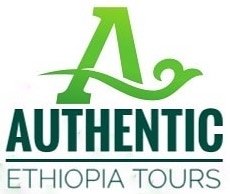




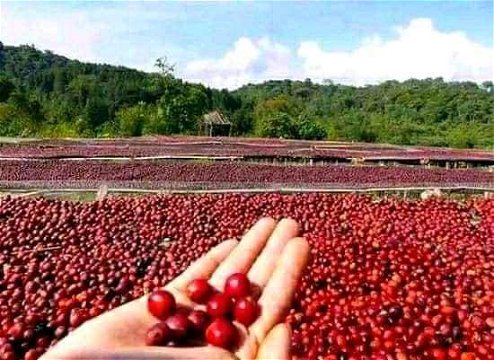
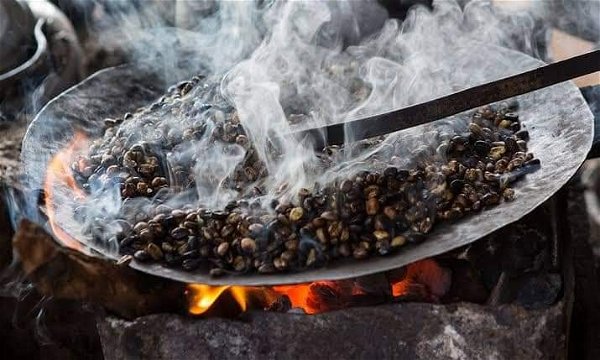
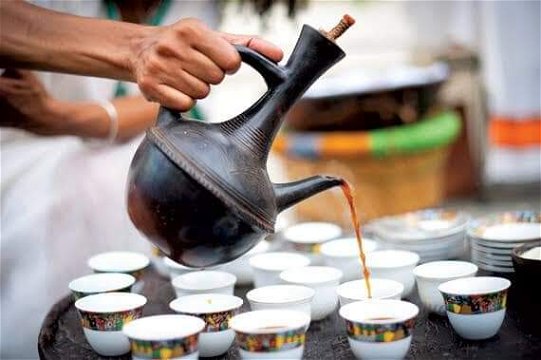
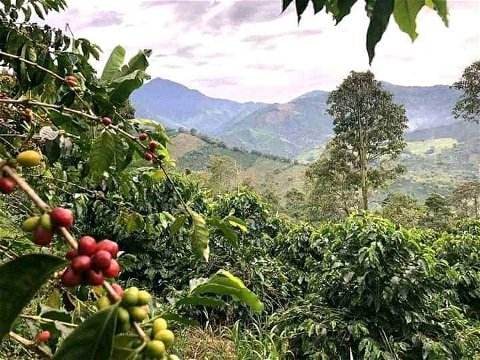



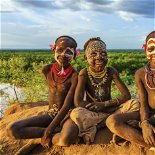
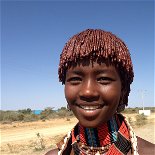
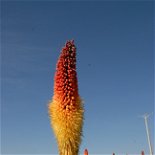
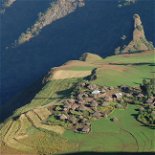
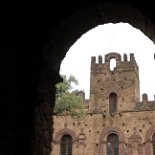
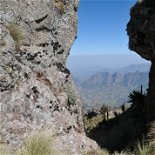
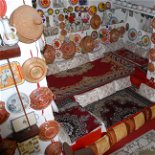
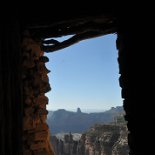
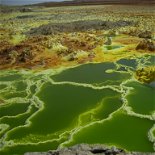
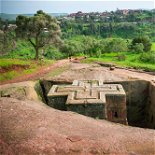
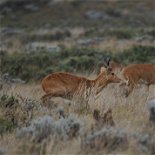
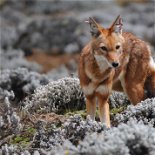
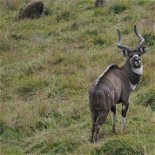
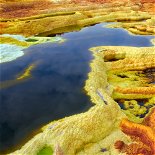
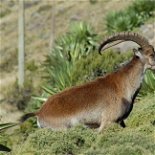
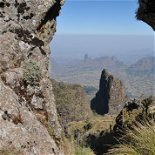
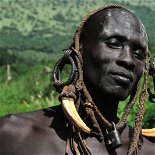
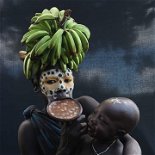
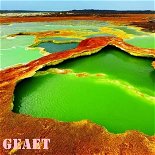
Share This Page